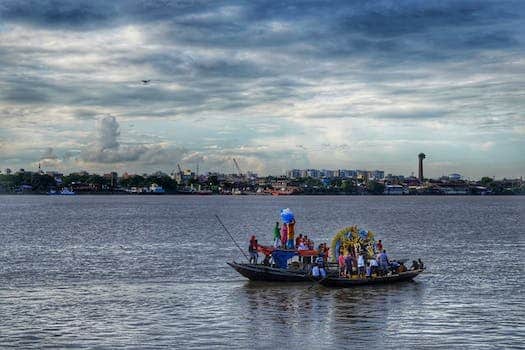Cultural immersion programs have the power to transform lives, offering individuals a unique opportunity to embrace diversity and expand their horizons. By immersing ourselves in different cultures, we gain a deeper understanding and appreciation for the world around us. Through these programs, we can break down barriers, challenge our preconceived notions, and develop a global perspective that fosters empathy and open-mindedness. In this article, we will explore the immense benefits of cultural immersion programs and how they can enrich our personal and professional lives.
- 1. Introduction
- 1.1. Definition of cultural immersion programs
- 1.2. Importance of cultural immersion programs
- 1.3. Benefits of cultural immersion programs
- 1.4. Different types of cultural immersion programs
- 1.5. How cultural immersion programs work
- 2. Preparing for a Cultural Immersion Program
- 2.1. Researching the host country
- 2.2. Learning basic language skills
- 2.3. Understanding cultural customs and etiquette
- 2.4. Packing essentials for a cultural immersion program
- 2.5. Mental preparation for cultural immersion
- 3. Experiencing Cultural Immersion
1. Introduction
Cultural immersion programs offer a unique opportunity to embrace diversity and expand one’s horizons. These programs allow individuals to fully immerse themselves in a different culture, gaining firsthand experience and understanding of its customs, traditions, and way of life. By participating in such programs, individuals can develop a deeper appreciation for cultural diversity and foster cross-cultural understanding. Moreover, cultural immersion programs provide a platform for personal growth and self-discovery, as they challenge individuals to step out of their comfort zones and adapt to unfamiliar environments. This article will explore the power of cultural immersion programs and highlight the numerous benefits they offer to participants.
1.1. Definition of cultural immersion programs
Cultural immersion programs refer to educational experiences that allow individuals to fully immerse themselves in a different culture. These programs provide opportunities for participants to engage with local communities, traditions, languages, and customs, fostering a deep understanding and appreciation for diversity. By actively participating in the daily life of a foreign culture, individuals are able to expand their horizons, broaden their perspectives, and gain valuable insights into different ways of living and thinking. Cultural immersion programs are designed to break down barriers, promote intercultural understanding, and encourage personal growth and development. Through direct engagement and interaction, participants can develop meaningful connections, challenge their preconceived notions, and ultimately become more open-minded global citizens.
1.2. Importance of cultural immersion programs
Cultural immersion programs play a vital role in today’s globalized world, allowing individuals to embrace diversity and expand their horizons. These programs provide a unique opportunity for individuals to immerse themselves in a different culture, gaining firsthand experience and understanding of its traditions, customs, and way of life. By participating in cultural immersion programs, individuals can develop a greater appreciation and respect for other cultures, breaking down barriers and fostering cross-cultural understanding. This not only enhances personal growth but also promotes tolerance and acceptance in society. In an increasingly interconnected world, cultural immersion programs are essential for individuals to develop a global perspective and thrive in diverse environments.
1.3. Benefits of cultural immersion programs
Cultural immersion programs offer numerous benefits for individuals seeking to embrace diversity and expand their horizons. These programs provide participants with the opportunity to fully immerse themselves in a different culture, allowing them to gain a deeper understanding and appreciation for its customs, traditions, and way of life. By actively engaging in the local community, individuals can develop cross-cultural communication skills and foster meaningful relationships with people from different backgrounds. Additionally, cultural immersion programs often provide unique learning experiences, such as language classes, cooking workshops, or art demonstrations, which allow participants to acquire new skills and knowledge. Furthermore, these programs can promote personal growth and self-discovery, as individuals learn to navigate unfamiliar environments, challenge their assumptions, and develop a more global perspective. Overall, cultural immersion programs offer a transformative experience that can broaden one’s worldview and enhance their intercultural competence.
1.4. Different types of cultural immersion programs
Cultural immersion programs offer individuals the opportunity to fully immerse themselves in a different culture, allowing for a deeper understanding and appreciation of diversity. These programs provide a unique and transformative experience, allowing participants to expand their horizons and gain a broader perspective of the world. There are various types of cultural immersion programs available, each offering a distinct approach to embracing different cultures. Whether it’s studying abroad, volunteering in a foreign community, or participating in cultural exchange programs, these immersive experiences can have a profound impact on personal growth and intercultural understanding.
1.5. How cultural immersion programs work
Cultural immersion programs offer a unique and enriching experience for those seeking to embrace diversity and expand their horizons. These programs provide individuals with the opportunity to fully immerse themselves in a different culture, allowing them to gain a deeper understanding of the traditions, customs, and way of life of another community. By participating in cultural immersion programs, individuals can break down barriers, foster empathy, and develop a global perspective. This section will explore how these programs work and the benefits they offer to participants.
2. Preparing for a Cultural Immersion Program
Preparing for a cultural immersion program requires careful planning and consideration. It is an opportunity to fully embrace diversity and expand your horizons. Here are some essential steps to help you make the most of your cultural immersion experience.
1. Research your destination: Before embarking on a cultural immersion program, it is important to research and learn about the country or community you will be visiting. Understanding their customs, traditions, and history will not only enhance your experience but also show respect for their culture.
2. Learn the language: Language plays a crucial role in cultural immersion. Take the time to learn basic phrases and greetings in the local language. This will not only help you communicate with the locals but also show your genuine interest in their culture.
3. Pack appropriately: Dressing appropriately is essential when participating in a cultural immersion program. It is important to respect the local dress code and customs. Research about the appropriate attire for different occasions and pack accordingly.
4. Open-mindedness: Keep an open mind and be willing to embrace new experiences and perspectives. Cultural immersion is about stepping out of your comfort zone and being receptive to different ways of thinking and living.
5. Respect cultural norms: Each culture has its own set of norms and values. It is crucial to respect these norms during your immersion program. Be mindful of your actions and behavior to avoid unintentionally offending the locals.
6. Engage with the locals: One of the main goals of a cultural immersion program is to interact with the local community. Engage in conversations, participate in local activities, and make an effort to build meaningful connections. This will not only enrich your experience but also foster cross-cultural understanding.
7. Keep a journal: Documenting your experiences in a journal can be a valuable way to reflect on your cultural immersion journey. Write down your observations, thoughts, and feelings to capture the essence of your experience.
By following these steps, you can prepare yourself for a fulfilling and transformative cultural immersion program. Embrace diversity, expand your horizons, and embark on a journey of self-discovery.
2.1. Researching the host country
Researching the host country is an essential step in preparing for a cultural immersion program. By familiarizing yourself with the customs, traditions, and social norms of the host country, you can gain a deeper understanding of its culture and navigate your way more effectively during your program.
Start by conducting thorough research on the history, geography, and political landscape of the host country. This will provide you with valuable context and help you appreciate the country’s cultural heritage. Look into the predominant religions, languages, and ethnic groups to gain insights into the diversity that exists within the country.
Additionally, it is crucial to explore the social etiquette and acceptable behavior in the host country. Understanding appropriate greetings, gestures, and forms of address can help you forge meaningful connections with locals and avoid unintentionally offending anyone.
Furthermore, take the time to learn about the local cuisine, traditional clothing, and popular cultural festivals. This knowledge will not only enhance your cultural immersion experience but also enable you to actively participate and engage with the local community.
In conclusion, researching the host country prior to embarking on a cultural immersion program is instrumental in preparing for a successful and enriching experience. It allows you to adapt to the new environment more easily, appreciate the local culture, and build meaningful connections with the people you will encounter.
2.2. Learning basic language skills
Learning basic language skills is an essential step in preparing for a cultural immersion program. Language is a powerful tool that helps us connect with people from different cultures and understand their perspectives. By acquiring basic language skills, we can break down barriers and foster meaningful interactions during our cultural immersion experience. Here are a few tips to enhance your language skills before embarking on a cultural immersion program:
1. Start with the basics: Begin by learning common phrases and greetings in the local language. This will not only help you navigate your way around, but also show respect and appreciation for the host culture.
2. Practice listening and speaking: Engage in conversations with native speakers or language exchange partners. This will help you improve your pronunciation, fluency, and comprehension skills. Embrace any opportunity to practice speaking in the target language.
3. Use language learning apps and resources: Take advantage of language learning apps, online courses, and resources like books, podcasts, and videos. These tools can provide structured lessons and practice exercises to supplement your learning.
4. Immerse yourself in the language: Surround yourself with the language as much as possible. Watch movies, listen to music, read books, and try to think in the target language. The more exposure you have, the better you will become in understanding and using the language.
5. Be patient and persistent: Learning a new language takes time and effort. It is important to be patient with yourself and embrace mistakes as part of the learning process. Stay committed and practice consistently to see progress.
By investing time and effort into learning basic language skills, you will not only enhance your cultural immersion experience but also gain a deeper understanding and appreciation for the host country’s language and culture.
2.3. Understanding cultural customs and etiquette
Understanding cultural customs and etiquette is essential when preparing for a cultural immersion program. Immersing oneself in a different culture can be a transformative experience, but it is important to be aware and respectful of the customs and etiquette of the host country. By understanding and practicing the cultural norms, participants can ensure a positive and meaningful experience during their immersion program.
Cultural customs vary greatly from one country to another. They encompass a wide range of behaviors, traditions, and social expectations. These customs often dictate how people interact with each other, their attitudes towards time, personal space, and many other aspects of daily life. For example, in some cultures, it is customary to greet others with a handshake, while in others, a bow or a kiss on the cheek may be more appropriate.
Etiquette, on the other hand, refers to the accepted code of behavior in a particular society. It includes the expected manners, politeness, and social conventions. Understanding and adhering to proper etiquette shows respect for the host culture and helps to avoid misunderstandings or offending others unintentionally.
Before embarking on a cultural immersion program, it is crucial to research and familiarize oneself with the customs and etiquette of the host country. This can be done through reading books, watching documentaries, or even reaching out to individuals from that culture. Learning about the cultural dos and don’ts will not only enhance the overall experience, but it will also enable participants to engage more effectively with the local community.
Furthermore, cultural sensitivity training or orientation sessions may be provided as part of the immersion program. These sessions aim to educate participants about the cultural nuances, values, and expectations of the host country. They provide valuable insights on how to navigate social situations, communicate respectfully, and adapt to different cultural practices.
In conclusion, preparing for a cultural immersion program requires a thorough understanding of the cultural customs and etiquette of the host country. By respecting and embracing these customs, participants can fully immerse themselves in the local culture, foster meaningful connections, and broaden their horizons.
2.4. Packing essentials for a cultural immersion program
When preparing for a cultural immersion program, packing the right essentials is crucial. These items will not only help you navigate through a new culture but also ensure you have a comfortable and enjoyable experience. Here are some packing essentials to consider:
1. Comfortable Clothing: Pack appropriate clothing that aligns with the culture and climate of your destination. It’s essential to dress modestly and respect local customs. Research the cultural norms beforehand and pack accordingly.
2. Comfortable Shoes: Expect to do a lot of walking and exploring during your cultural immersion program. Make sure to bring comfortable shoes that are suitable for various terrains. It’s also a good idea to pack a pair of sandals or flip-flops for relaxation and beach visits.
3. Travel Documents: Don’t forget to pack all necessary travel documents, including your passport, visa, and any required identification. Keep these documents in a safe place and carry copies as backup.
4. Personal Medications: If you have any specific medical conditions or require regular medication, make sure to pack an ample supply for the duration of your cultural immersion program. It’s also wise to carry a copy of your prescriptions in case of emergencies.
5. Adapters and Chargers: Depending on your destination, you may need adapters for your electronic devices. Research the type of plugs used in the country you’re visiting and pack the appropriate adapters. Also, remember to bring chargers for all your electronic devices.
6. Toiletries: Pack essential toiletries such as toothbrush, toothpaste, shampoo, conditioner, soap, and any other personal care items you may need. Consider travel-sized options to save space in your luggage.
7. First Aid Kit: It’s always a good idea to have a basic first aid kit with you. Include items such as band-aids, antiseptic ointment, pain relievers, and any other medications you may require.
8. Money and Cards: Ensure you have enough local currency for your initial expenses. It’s also advisable to carry a credit or debit card for emergencies or larger purchases. Notify your bank of your travel plans to avoid any issues with card usage.
Remember, packing light and efficiently is key. Consider the duration of your program and pack accordingly. It’s also helpful to check with your program organizers for any specific recommendations or restrictions. By being prepared and packing the right essentials, you’ll be ready to fully immerse yourself in a new culture and make the most of your cultural immersion program.
2.5. Mental preparation for cultural immersion
Mental preparation is a crucial aspect of getting ready for a cultural immersion program. As you embark on this enriching journey, it is essential to prepare yourself mentally to make the most out of the experience. Here are some key steps to take in order to mentally prepare for cultural immersion:
1. Embrace an open mindset: Cultivate a willingness to embrace new ideas, perspectives, and ways of life. Approach the immersion program with curiosity and a desire to learn from the culture you will be immersed in.
2. Educate yourself: Before embarking on your cultural immersion program, take the time to learn about the history, customs, traditions, and social norms of the destination country. This will help you better understand and appreciate the cultural differences you will encounter.
3. Manage your expectations: It is important to have realistic expectations and understand that cultural immersion can be challenging at times. Be prepared to face cultural differences, language barriers, and unfamiliar situations. Keeping an open mind and a positive attitude will help you navigate these challenges.
4. Develop cultural sensitivity: Cultivate empathy and respect for the culture you will be immersed in. Understand that there may be cultural practices or beliefs that differ from your own, and approach them with an open and non-judgmental mindset.
5. Reflect on your own culture: Take the time to reflect on your own cultural background and biases. This self-awareness will help you better understand the impact of culture on individuals and societies.
6. Practice adaptability: Cultural immersion programs often involve stepping out of your comfort zone. Practice adaptability by being open to new experiences, trying new foods, participating in local customs, and engaging with the local community.
By mentally preparing yourself for a cultural immersion program, you will be able to fully immerse yourself in a new culture, gain a deeper understanding of global diversity, and expand your horizons.
3. Experiencing Cultural Immersion
Experiencing cultural immersion is an invaluable opportunity to truly embrace diversity and expand your horizons. By participating in cultural immersion programs, individuals have the chance to immerse themselves in a different culture, gaining a deeper understanding and appreciation for its customs, traditions, and way of life. This experience goes beyond mere tourism, as it allows individuals to connect with locals, engage in meaningful interactions, and develop a profound sense of empathy and respect for different cultures. Cultural immersion programs enable participants to break down stereotypes, challenge their own preconceived notions, and foster a sense of global citizenship. Through firsthand experiences, individuals can develop cross-cultural communication skills, broaden their perspective, and gain a greater appreciation for the complexities and richness of our diverse world.
3.1. Living with a host family
Living with a host family is an integral part of experiencing cultural immersion. By sharing a home with locals, you have the opportunity to engage in daily life activities and witness firsthand the customs, traditions, and values of a different culture. This immersive experience allows you to gain a deeper understanding of the host country’s way of life, enhancing your overall cultural knowledge.
Living with a host family also provides a unique opportunity to form meaningful connections and build long-lasting relationships. You become a part of their family, participating in family meals, celebrations, and outings. This close interaction allows for a genuine cultural exchange, where you can actively learn from each other and broaden your perspectives.
Furthermore, living with a host family offers a safe and supportive environment for language practice. You have the chance to improve your language skills by conversing with native speakers on a daily basis. This immersive language learning experience accelerates your progress and helps you develop a more authentic accent and fluency.
Overall, living with a host family during a cultural immersion program is an invaluable opportunity to fully immerse yourself in a different culture, fostering personal growth, and expanding your horizons.
3.2. Attending cultural events and festivals
Attending cultural events and festivals is a key aspect of experiencing cultural immersion. These events provide an opportunity to witness and participate in the traditions, customs, and artistic expressions of different cultures. Whether it is a religious festival, a music concert, a dance performance, or a culinary event, cultural gatherings offer a unique insight into the identity and heritage of a community.
By attending these events, individuals can engage with locals, learn about their beliefs and values, and gain a deeper understanding of their way of life. It allows for a direct interaction with the culture, enabling individuals to experience firsthand the sights, sounds, and tastes that make a particular culture distinct.
Moreover, cultural events and festivals often showcase traditional arts and crafts, traditional clothing, and other cultural artifacts. This offers an opportunity to appreciate the craftsmanship and creativity of the local artisans. It also serves as a platform for the preservation and promotion of cultural practices that might otherwise be forgotten or overshadowed by modern influences.
Participating in cultural events and festivals can also foster cross-cultural connections and friendships. It brings people from diverse backgrounds together, creating a shared space for cultural exchange and dialogue. By interacting with individuals from different cultures, individuals can challenge their own preconceptions, broaden their perspectives, and develop a greater appreciation for diversity.
Overall, attending cultural events and festivals is an enriching experience that allows individuals to immerse themselves in the vibrant tapestry of human culture. It helps break down barriers, promotes understanding, and fosters a sense of global interconnectedness. Whether it is a local celebration or a renowned international festival, embracing cultural immersion through these events can truly expand one’s horizons.
3.3. Participating in local traditions and rituals
Participating in local traditions and rituals is an essential aspect of cultural immersion. By engaging in these age-old practices, individuals can truly experience the richness and depth of a foreign culture. Whether it is joining in a traditional dance, witnessing a religious ceremony, or partaking in a local festival, these experiences allow for a deeper understanding and connection to the community.
Immersing oneself in the local traditions provides an opportunity to gain insight into the values, beliefs, and customs of a particular culture. It allows individuals to break down barriers and foster meaningful relationships with locals. Through active participation, one can develop a sense of belonging and appreciation for the heritage and way of life of the community.
Moreover, engaging in local traditions and rituals helps to break away from the tourist facade and delve into the authentic essence of a destination. It provides a unique perspective that goes beyond the surface-level attractions and allows for a more profound cultural understanding.
Participating in these activities also encourages personal growth and self-reflection. It challenges individuals to step out of their comfort zones, embrace unfamiliar practices, and broaden their horizons. By immersing oneself in different traditions, one can develop a greater appreciation for diversity and learn valuable lessons about acceptance and tolerance.
In conclusion, participating in local traditions and rituals is a vital component of cultural immersion. It allows individuals to embrace diversity, expand their horizons, and forge meaningful connections with the local community. By actively engaging in these experiences, one can truly appreciate the power of cultural immersion programs and the profound impact they can have on personal growth and intercultural understanding.
3.4. Exploring historical and cultural landmarks
Exploring historical and cultural landmarks is an integral part of experiencing cultural immersion. These landmarks provide a deep understanding of the rich history and diverse heritage of a particular region or country. By visiting these sites, individuals can witness firsthand the legacy of past civilizations and the evolution of cultures over time.
One such historical landmark is the Great Wall of China, a UNESCO World Heritage Site. This ancient architectural marvel not only showcases the engineering prowess of the Chinese but also represents their enduring spirit and resilience. Walking along the Great Wall, visitors can imagine the lives of the laborers who built it and contemplate the historical events that shaped China.
Another significant cultural landmark is the Colosseum in Rome. This iconic amphitheater stands as a testament to the grandeur and spectacle of ancient Roman entertainment. Stepping inside the Colosseum, one can envision the gladiatorial combats and theatrical performances that once enthralled audiences. It is a glimpse into the ancient world and a reminder of the cultural legacy left behind.
In addition to these famous landmarks, there are numerous lesser-known historical and cultural sites that offer equally captivating experiences. For example, the Angkor Wat temple complex in Cambodia is a true marvel of Khmer architecture and a symbol of national pride. The intricate carvings and towering structures transport visitors to a bygone era, allowing them to appreciate the artistic and spiritual significance of the temple.
Exploring these historical and cultural landmarks not only fosters a sense of appreciation for the past but also promotes cross-cultural understanding. By immersing oneself in different cultures, individuals gain a broader perspective on the world and develop empathy and respect for diverse customs and traditions. Cultural immersion programs provide the opportunity to engage with local communities, learn their customs, and participate in their everyday activities. This hands-on approach enables participants to truly experience the essence of a culture and build meaningful connections with people from different backgrounds.
In conclusion, cultural immersion programs that include visits to historical and cultural landmarks offer a transformative experience. These programs allow individuals to embrace diversity, expand their horizons, and develop a deeper understanding of the world we live in. By exploring the rich history and diverse heritage of different regions, participants gain a profound appreciation for the past and cultivate a greater sense of cultural empathy and respect.
3.5. Engaging with the local community
Engaging with the local community is a crucial aspect of cultural immersion programs. By actively participating in the local community, individuals can experience firsthand the traditions, customs, and values of a different culture. This engagement allows for a deeper understanding and appreciation of diversity, helping to break down stereotypes and foster mutual respect.
One way to engage with the local community is through volunteering. Many cultural immersion programs offer opportunities to contribute to community projects or assist local organizations. Whether it’s teaching English to children, building homes, or working on environmental initiatives, these experiences not only benefit the local community but also provide participants with valuable insights and personal growth.
Another way to engage with the local community is by attending cultural events and festivals. These vibrant celebrations showcase the unique traditions and artistic expressions of a particular culture. By actively participating in these events, individuals can gain a firsthand experience of the local customs, music, dance, and cuisine. It’s an opportunity to interact with locals, learn about their heritage, and forge meaningful connections.
Furthermore, cultural immersion programs often facilitate homestays, where participants live with local families. This arrangement allows individuals to truly immerse themselves in the daily lives of the locals, experiencing their routines, traditions, and even sharing meals together. Homestays provide a genuine cultural exchange, fostering friendships and creating lasting memories.
Engaging with the local community during a cultural immersion program not only enriches the experience but also promotes understanding, empathy, and acceptance. It offers a chance to explore different perspectives, challenge preconceived notions, and broaden one’s horizons. By embracing diversity and actively participating in the local community, individuals can gain a deeper appreciation for different cultures and develop lifelong skills and connections.
Conclusion
Cultural immersion programs offer a powerful opportunity to embrace diversity and expand horizons. By immersing oneself in different cultures, individuals gain a deeper understanding and appreciation of the world around them. These programs not only foster personal growth but also promote global understanding and empathy. Through cultural immersion, we can break down barriers, build bridges, and create a more connected and inclusive society.





